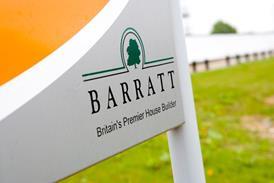In 2016, voters went with their hearts to leave the European club and reject the ‘no Trump’ message of Mrs Clinton. This leaves investors with a considerable dilemma in terms of how to play their cards in 2017.

At the moment everything looks relatively rosy. ‘Britain has world’s top economy’ ran the headlines in The Times. Stock markets are at record highs. Economic growth is stronger than expected. The latest PMI surveys are all positive. Interest rates are expected to remain low. A perfect backdrop for investors to look to the future with confidence, then?
Is it all too good to be true? Is it just a matter of time before the doom-mongers are proved right and the hatches are battened down? The simple answer is we don’t know, which makes life difficult.
A year ago, ‘risk on’ was gaining currency as there was a clear differential between the pricing of value add and core investments.

Improvements in letting markets driven by economic growth in the regions justified taking letting risk and pushing into value add as a strategy.
The only concern was that this pricing advantage would be eroded by a general rotation to this strategy, with yields compressing and too much new supply a consequence. That has not happened.
Flight to prime
The post-Brexit vote reaction has been a flight back to prime. Does this mean there is even more value in value? I have a feeling it does. Although we can expect some tenant demand issues, the supply position in the winning parts of the economy that should be resilient to Brexit remains very attractive.
The post-Brexit vote reaction has been a flight back to prime
Whatever the reading of the market, one thing that underpins our asset class over the long term is income. Strategies focused on income, income growth and gains from asset enhancement should pay dividends - literally. It is time, therefore, for some serious management spade work focused on protecting existing income and creating new sources.
To be successful, asset managers need to focus more on creating a building product that occupiers want rather than throwing rent-free and capital inducements to buy the tenant’s loyalty.
Getting investment decisions right has a bigger premium than ever. Higher transaction costs imposed in 2016 mean round-trip costs from portfolio trading will exceed one-year total returns for the foreseeable future. Allowing for cash drag between selling and buying, it could be closer to two years.
Put another way, for the equity investor you need to see a performance differential between the new and old asset of at least 2% per year over three years to break even on a switch.
It will be interesting to see whether buy/hold/sell analysis starts to be done over a longer period. Not good news for investment agents.
Risk taking distorting the market
One part of the investment market that sees current property pricing as a slam dunk is local authorities, which are behaving like hedge funds exploiting a financial arbitrage.
They are able to borrow up to 100% of a property acquisition at an interest rate as close as you can get to a government gilt and then pocket the difference between that and the income return from the investment. While some are using regeneration as the rationale, the main attraction is revenue creation to bridge the effect of cuts in their budgets.

This is risk taking so out of line with the private sector that it is distorting the market. Why is the government borrowing money to lend to local authorities to buy real estate on terms that make bank lending to the property sector before the GFC look positively conservative?
This year may be a tricky year for investors, requiring them to show a bit of finesse. Returns driven by income and high transaction costs demand fresh thinking on management of assets and investment time horizons.
However, while uncertainty will dominate in the short term, that does not mean some well-thought-through value-add strategies will be unrewarded over the longer term. Oh, and fill your boots with sales of long-dated cash flows to local authorities before the music stops.































No comments yet